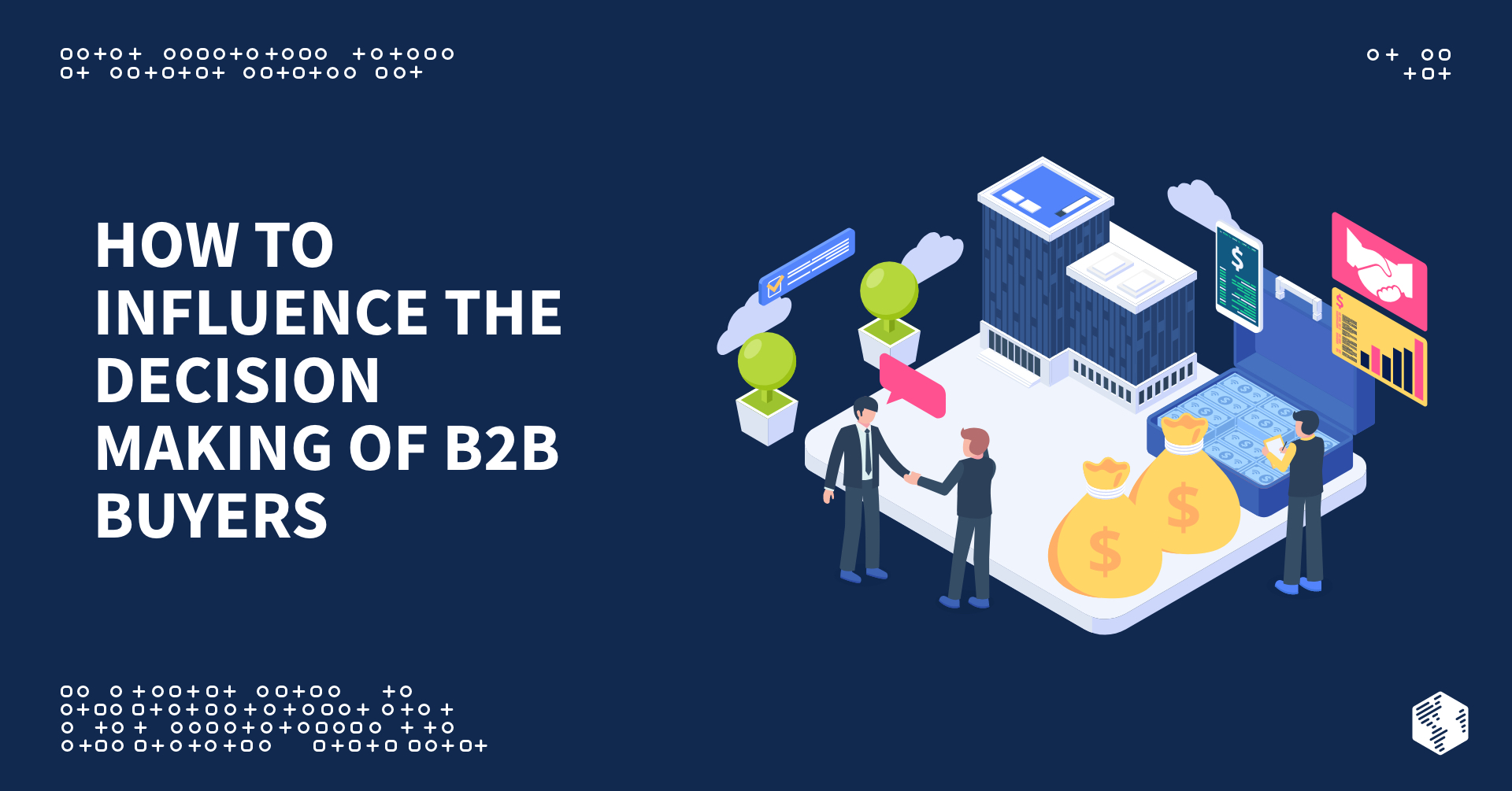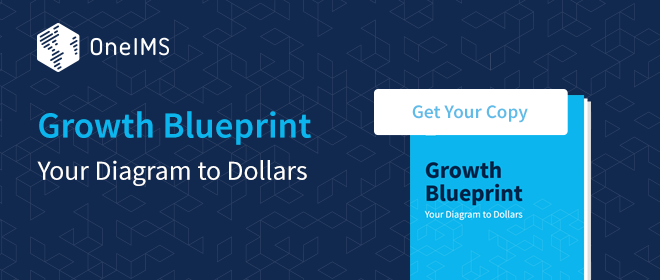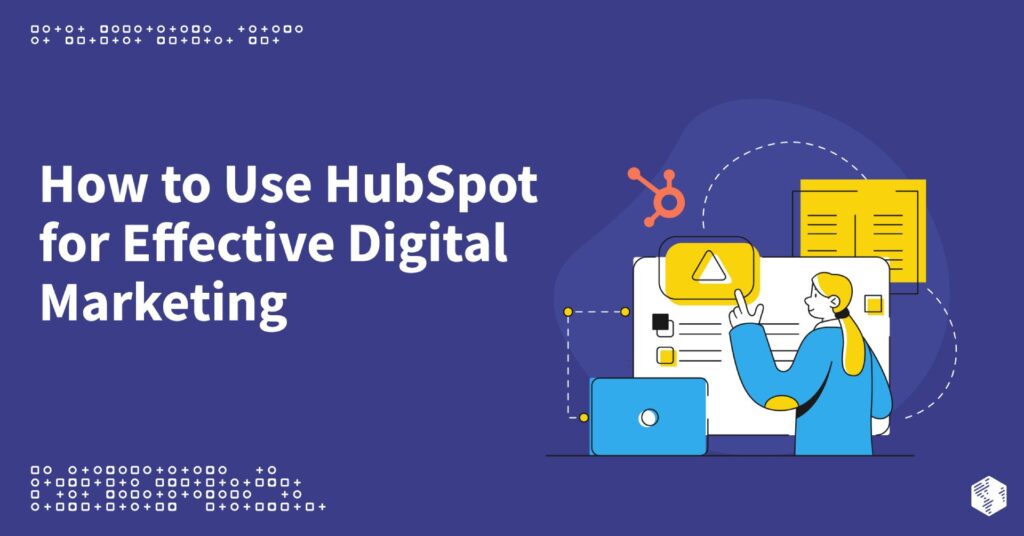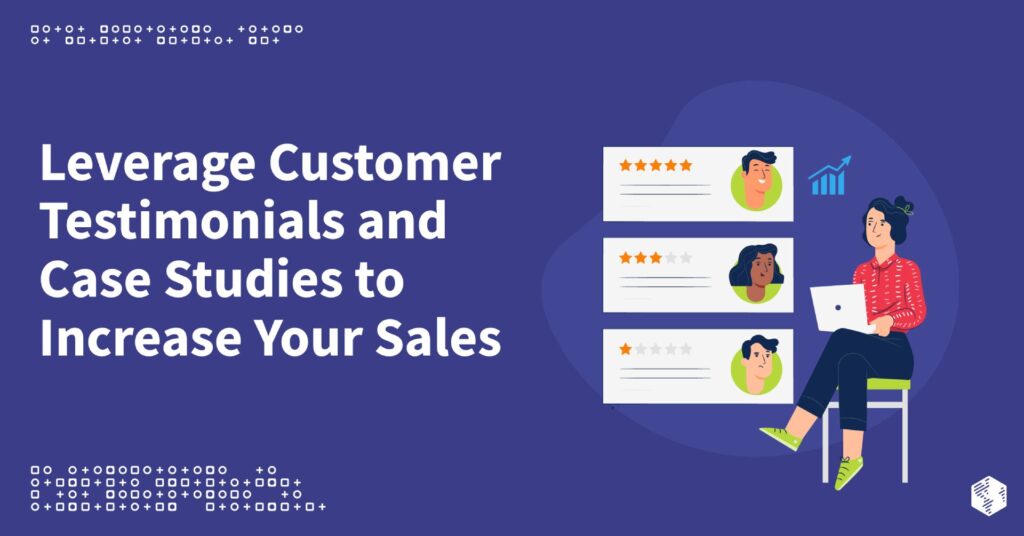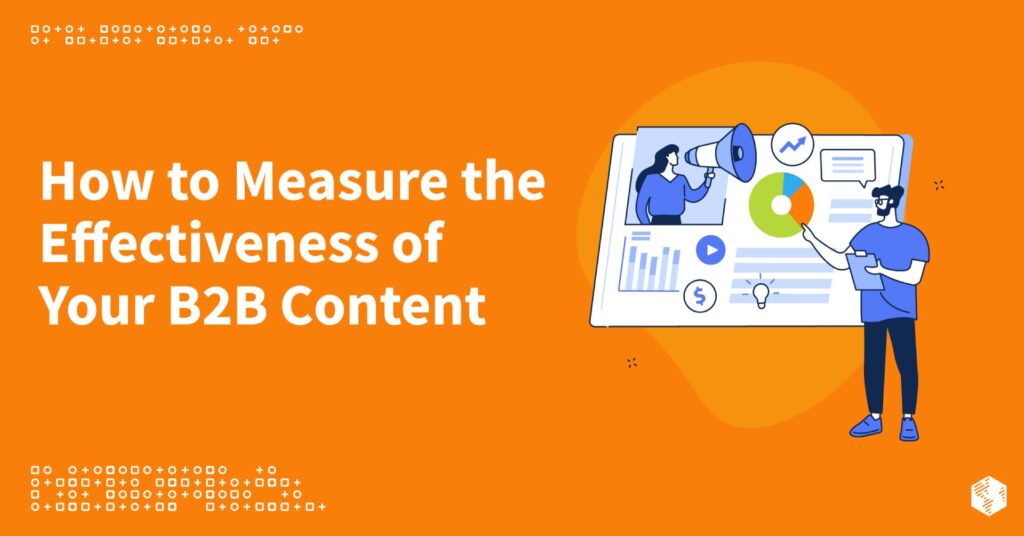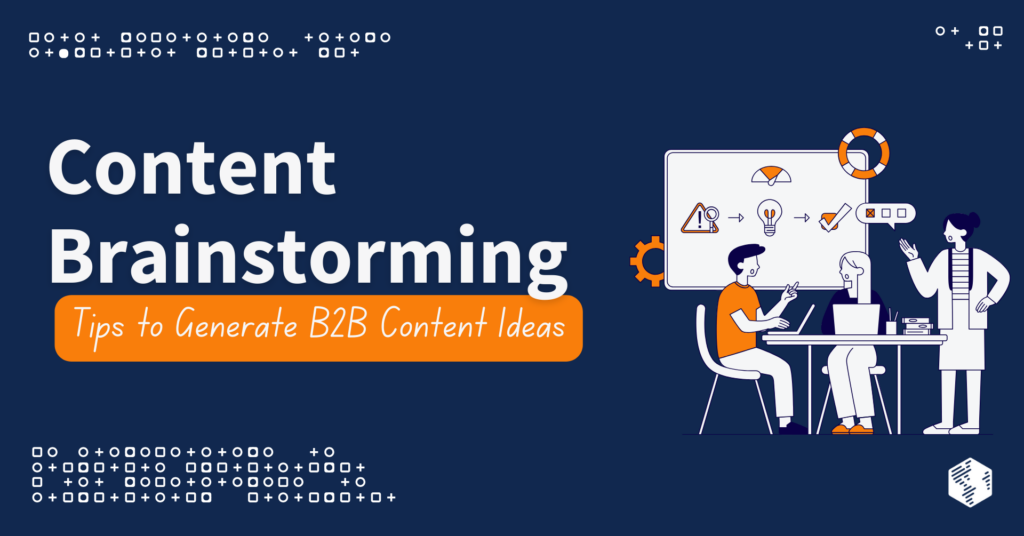When it comes to the B2B buying process, it may be hard to determine how buyer’s come to their decision. After all, we typically tend to think of Business to Customer (B2C) businesses when we think of decision-making. Iconic brands like Nike, Apple, and many more come to mind. The main factor influencing the decisions of the audience in the buying process here is an emotional connection. Brands that manage to ‘win over their customers tend to do well.
Business to Business (B2B) companies are similar to B2C companies in this respect. But the similarities almost end here. There are marked differences between how B2C and B2B make buyers make purchase decisions. For one thing, B2C buyers tend to avoid regret when making such a decision, while B2B buyers are keener on avoiding blame for the same.
The above is the reason B2B buying processes are longer and to influence the decision-making of B2B buyers, you need to first gain their trust.
In this article, we shall take a look in-depth at the difference between B2B and B2C buying processes, the factors that affect the decision-making of B2B buyers, and what you can do to influence it.
How Is the B2B Buying Process Different from the B2C Buying Process?
The B2B buying process can be incredibly complex and tedious. It is different from the B2C buying process in a variety of ways. The main distinctions are:
- It is process-driven. When B2B buyers make a purchase decision, it is to improve a process or efficiency. B2C buyers, on the other hand, are emotionally driven when they make purchase decisions to satisfy a need. You will find B2C buyers making impulsive buying decisions, but it never happens with B2B.
- The B2B buying process is longer and involves more research. There are a variety of factors that affect the process (as discussed below), which is why the B2B buyer’s journey is a long one and, thus, needs more nurturing.
- There is accountability in B2B decision-making. Unlike B2C buyers, B2B buyers are not buying for their own use, and neither are they investing their own money, so they are answerable to everyone involved with the company. If they were to make a purchase, they would have to be accountable to other members of the organization.
Which Information Sources Do B2B Buyers Use for Research?
Like it is mentioned above, B2B purchase decisions involve a lot of research. While traditional marketing such as cold calls, word-of-mouth, and so on used to be instrumental back in the day, most of the research today happens online. As a result, there is a lot more ‘independent’ research, which means vendors have very little direct influence over the buyer’s decision-making.
According to a report published by Gartner, buyers spend only 17% of their time meeting with potential suppliers and 27% researching online when considering a purchase.
B2B buyers generally lookup search engines, peer reviews, industry-specific whitepapers, blogs, and consult industry experts. Interestingly, B2B buyers also look up content on social media platforms. In fact, as per a study conducted by IDC, 75% of B2B buyers use social media as a means of supporting their buying decisions.
So, what do you do with this information?
You utilize it indirectly to influence the buying decisions of your target buyers. You will find out soon as to how you can go about achieving it.
What Factors Affect the B2B Buying Process?
While buying a product or hiring a service, B2B companies consider a multitude of factors while making purchase decisions.
Product Performance
As you may have expected, quality comes first, and hence serves as a benchmark for decision-makers when they make purchase decisions. When B2B decision-makers consider product performance, they are more interested in how the product will help them solve their pain points, as opposed to the product’s features and benefits.
To gain a fundamental grasp on the product, B2B decision-makers typically conduct a lot of research, going through product demos and reviews, online social proof, product descriptions, ebooks, manuals, white papers, and so on and so forth.
Social proof encompassing users’ comments and reviews, testimonials, and case studies, makes for is vital influencers because they are more likely to get an accurate assessment of the product from the user than you, the supplier. Testimonials and customer reviews in particular are immensely influential for decision-makers.
Product Durability
After product performance, B2B decision-makers tend to value product durability while making purchase decisions. Product durability, quality, or sustainability is the product’s ability to last substantially long without deteriorating in quality or requiring maintenance. Durable products help save resources and minimize wastage.
Durable, high-quality products are more likely to sell at high rates compared to cheap, unreliable products. B2B buyers take the time to find out if the product or service in question is reliable. Besides its durability, they are interested in its functionality, upgrades, warranties, and so on.
How can a B2B buyer ascertain the durability of a product? By checking manufacturing certifications, going through white papers, product descriptions, customer reviews, and testimonials.
Product Pricing
B2B decision-makers consider the price of a product or service vs. its performance and durability to check if it is worth it. In other words, its ability to save time and money while bringing value is taken into account because B2B buyers are essentially looking for functional as well as economic benefits with every purchase they make.
The other benefits that B2B decision-makers look for are allowances, discounts, hidden costs, credit, etc. For this reason, B2B buyers often compare different suppliers in terms of pricing as part of their research.
An effective way for you to make the cut and positively influence the buyer’s decision is by removing hidden costs. Doing so allows the decision-maker to completely trust a product or service provider, with the assumption that they will not have to pay for anything else down the line that has not been already stipulated.
Customer Service
Customer service is key in this day and age, and especially so for B2B businesses. B2B purchases usually involve big amounts of money and are long-term. Hence personal trust, relationships are highly valued.
Excellent customer service has always been of paramount importance for B2B businesses, and it is still mandatory to gain mileage today considering how social proof plays a vital role in influencing decisions.
Customer service is synonymous with customer experience. Besides knowing that they can get the product or service, they want to know that they will receive timely support if something were to go wrong.
In fact, B2B buyers seem to be valuing customer experience a little more than the product itself. Today’s B2B buyers generally look for an on-site live chat option, personalized customer service, and a dedicated account manager.
Delivery
The safe and timely delivery of products is another critical factor that B2B decision-makers consider when picking their ideal supplier. While many suppliers seem to deliver their goods on time, a handful of them has a proven track record of timely delivery, which ultimately gives them an edge over the others.
Besides the delivery itself, B2B buyers look for ordering and shipping procedures, insurance, etc., ultimately choosing a supplier that they think will serve them best for the kind of products they want.
Credibility
You would rarely see a B2B buyer investing a huge amount of money in purchasing a product or a service from a newbie company. The reason is again, they are not buying for their own use, and they are not investing their own money.
Also, B2B buying processes usually involve more than one decision-maker, so it is easier to unanimously come to an agreement about a purchase decision if the supplier is well-known and has a solid reputation.
Hence, credibility, trustworthiness, and reputation are important factors that influence B2B decision making.
Previous Experience
When zeroing in on the perfect supplier, B2B buyers look at their track record. An excellent track record of service and quality products establishes the decision makers’ trust in the supplier.
B2B buyers generally gauge the supplier’s ability or record of catering to companies of a similar size or type. Besides this, they look at the social proof, i.e., online reviews, customer testimonials, etc.
Post-Sale Service
B2B buyers often look for suppliers or brands that offer after-sale facilities, particularly if they are purchasing pricey products or services. Ultimately, they want to know that they will be able to make full use of the product in question. After-sale services could include training, maintenance, upgrades, etc.
Emotional Drivers of the B2B Buying Process
The factors mentioned above are the general and rational motivations behind making B2B purchases. However, given the complexity of making B2B purchases, there are emotional factors involved as well, which are as follows:
- Loss aversion, which means that buyers are more likely to act in a way to reduce their losses than advance their gains.
- Higher stakes, which means how much the decision-maker stands to lose, like their jobs.
- Maintaining the status quo, which means there needs to be a compelling reason to risk the change associated with making the purchase.
- Paralysis by analysis, which happens when you have multiple stakeholders involved in a decision not being able to reach a decision regarding the purchase.
Indirect Factors Affecting the B2B Buyer’s Journey
Here are factors that can also affect the B2B buyer’s journey towards making a purchase decision:
How Important is the Product or Service?
If the product or the service in question is strategically vital, B2B buyers will involve more decision-makers and experts. As mentioned in the beginning, these purchases involve more accountability and complexity than B2C purchases. Parameters like quality and reliability will affect the strategic importance of the product or service.
Purchasing a New Product vs. Repurchasing a Product
If the company is repurchasing a product from the same vendor, fewer people will be involved, and less setup and runtime will be required, as opposed to setting up and running a new product from scratch.
How Much Money is Being Spent?
If a product or service costs a lot, B2B companies are likely to have more stakeholders involved in the buying decision. High-priced products and services are expected to provide excellent levels of service and customization. However, vendors that provide low-priced products generally have lower leverage and make the purchase easy for the buyer.
Complexity and Difference Between Products
If you have products that are difficult to use and understand, and products that are vastly different from each other, B2B buyers would typically have to dedicate more time for research and training. The higher the complexity, the more specialists will be involved.
Influencing the Decision Making of B2B Buyers
As you now know, B2B purchases involve more risk, and there are a number of factors that affect the decision-making process, you would appreciate the fact that it is not easy to influence the decision of B2B buyers.
Having said that, there are ways to go about supporting the B2B buying process considering the logical and emotional factors that affect B2B purchase decisions.
How? Following are some ways to achieve it.
Minimize The Risk For them
The blatantly obvious thing to do is make them feel their purchase is not as risky as they think it is. If you want to solidify your chances of getting a B2B buyer to pick up your product or service, firstly, you need to let them know that it works. Your product or service descriptions must clearly show what the buyer can expect from investing in it.
Besides this, gather as many customer reviews, testimonials (preferably video), and customer case studies, as possible. Ultimately, you want to let them know that other buyers have purchased your product and you have proof that it worked for them.
Establish Rapport
It is not easy to outcompete all the other businesses in the market. If a competitor’s product in the same price range as yours were to outperform your product in terms of quality, and possibly pricing, the only way to compete and get the buyer to choose your product is through rapport. Building rapport will help the buyer connect to your brand, leading them to trust your products more than that your competitor.
Demonstrate Your Value
Most buyers want to sit at the helm of their niche and outperform their competitors by a country mile. This is exactly what you want your buyer to know you can do for them. In other words, you will have to show the buyer your product’s best features, its adaptability, use cases, and essentially, how the buyer can use it to their advantage consistently. Show them how they can get ahead and stay ahead.
Build Trust and Credibility
Content marketing is the key to gaining consistent online mileage, which is why marketers focus the vast majority of their marketing efforts on content. Brands that do this are the ones B2B buyers are after.
By providing valuable and relevant information through your content, you will be able to cement your position online as a credible source of value or expertise. B2B buyers want brands that have the expertise to remedy their issues.
Content marketing is instrumental in helping you to influence B2B buyers’ purchase decisions because a large chunk of a content marketing strategy consists of educational, informative, value-driven content, and not just sales.
Brands that write high-quality blog articles, white papers, and ebooks that demonstrate the brand’s reliability are the ones that will get through to B2B decision-makers.
Give Them An Incentive
Maybe your product works. Maybe the service you are offering is unique. You may have excellent customer service. You may have even managed to build rapport with the buyer. However, the competition is always cutthroat in today’s content-driven marketing scenario, which is why it becomes imperative to seal the deal by providing the buyer with a bonus. Consider sweetening the deal with incentives like a free trial or demo, an extra month of free usage, and so on.
Final Words
To recap, B2B purchase decisions are more complex than B2C purchase decisions because the stakes are higher, more organization members are involved, and research takes more time. B2B purchase decisions are influenced by a wide variety of factors, including both logical and emotional factors.
The emotional factors include an aversion to making a loss, maintaining the status quo, and paralysis by analysis. The logical ones that most B2B buyers consider are product performance, durability, pricing, customer service, delivery, credibility, previous experience, and post-sale service.
To influence the decision-making of B2B buyers, you would have to essentially reduce risk. The main steps you can take are minimizing the risk of the purchase, establishing rapport, demonstrating your value, and finally sweetening the deal with a bonus to get them to buy your product.
And there you have it – what you need to know about influencing the decision-making of B2B buyers. For more information on helpful B2B strategies to help convert leads to customers, contact us today.


